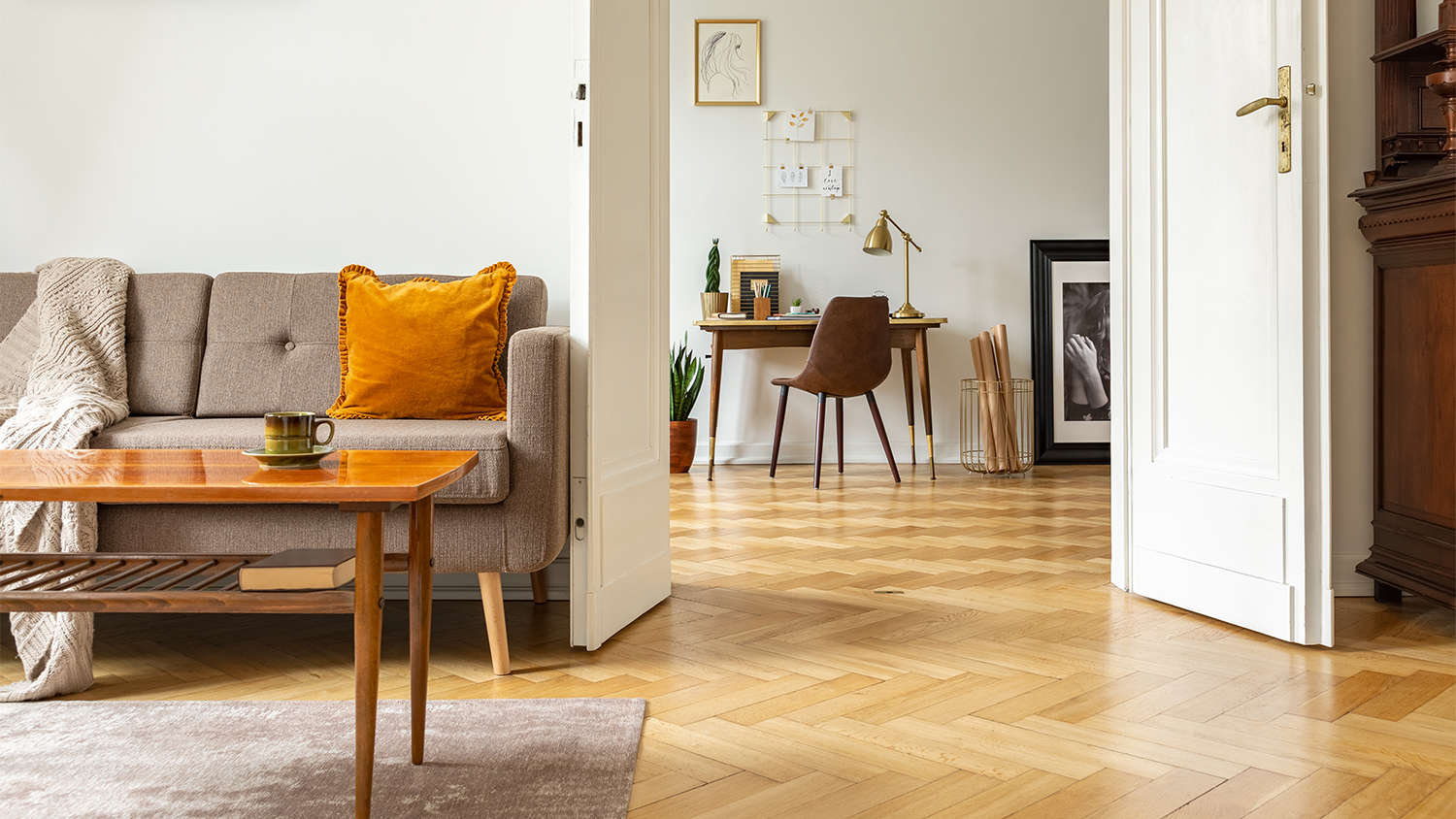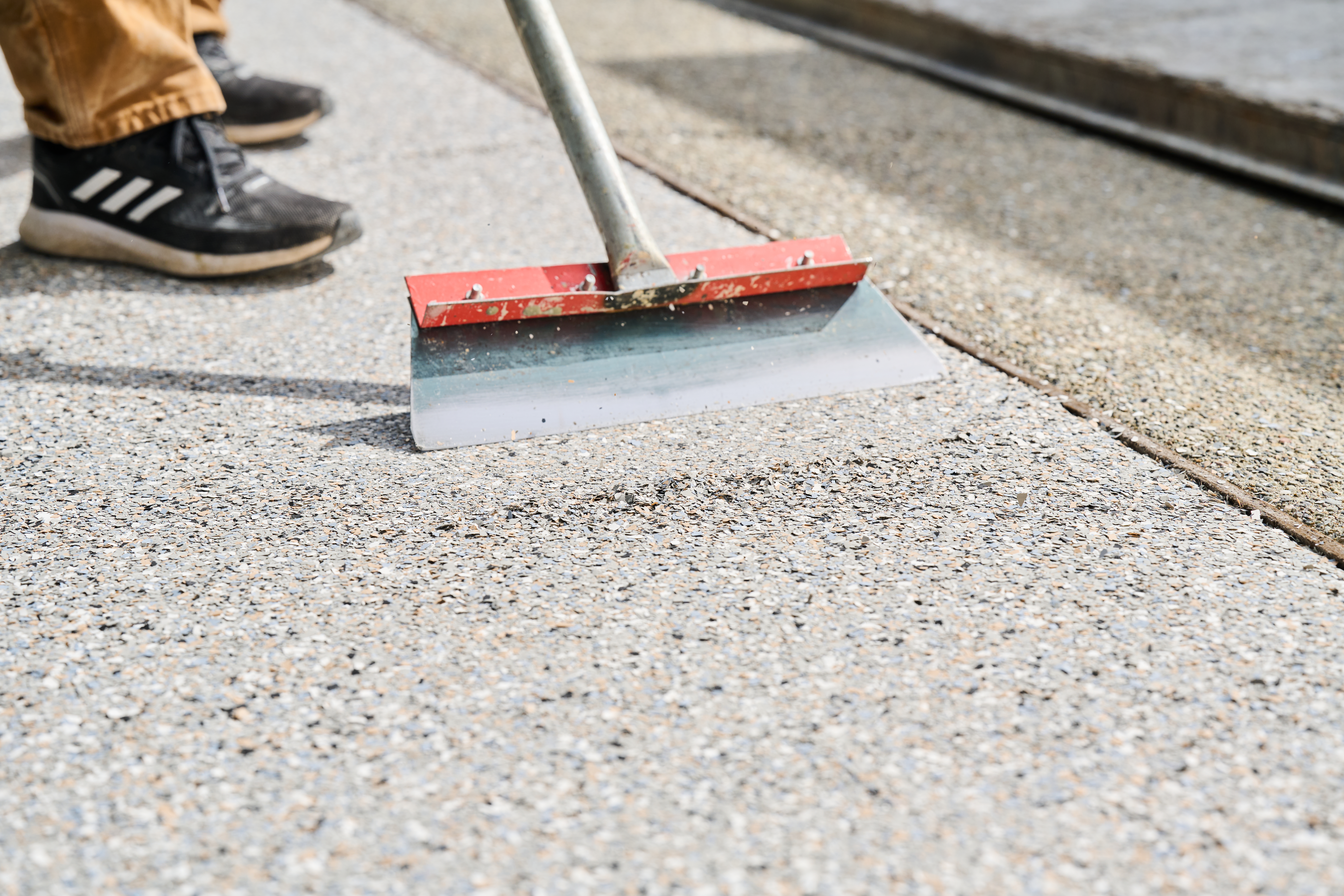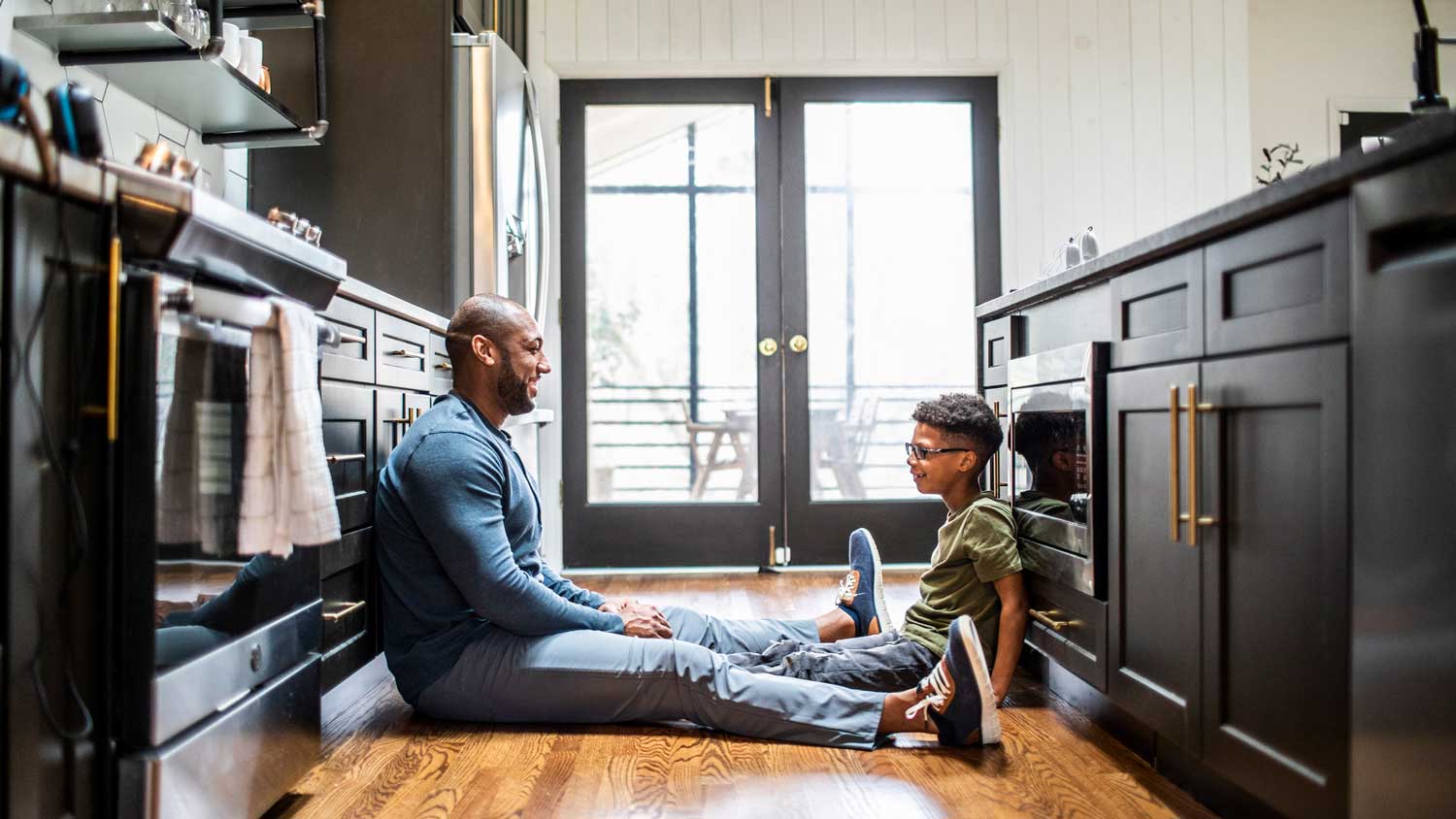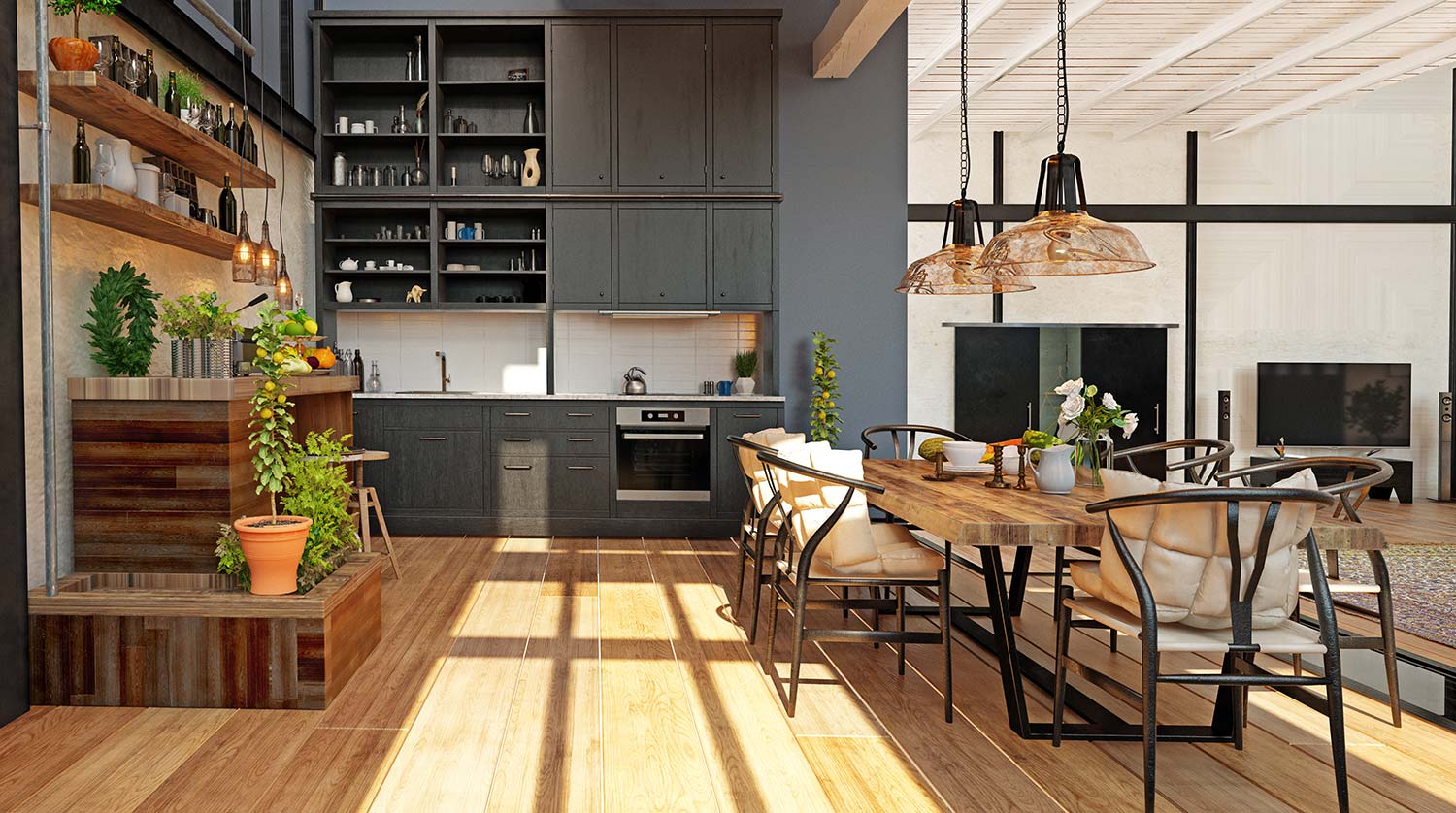
Installing new baseboards can totally refresh the look of your walls. Learn about the cost to install baseboards in your home.
Installing a new floor in Phoenix, AZ costs $3,584 on average, but can range between $1,684 and $5,568, depending on the room size and type of flooring.


Flooring installation in Phoenix costs $10 to $13 per square foot for midrange projects, including materials and labor.
Labor costs average $2 to $8 per square foot for standard installations, increasing with project complexity.
Contractor crews charge $50 to $120 per hour to remove furniture from a room before installing or replacing flooring.
Subfloor replacement or upgrades cost $3 to $10 per square foot ahead of new flooring installations.
A whole-home flooring upgrade yields an average return on investment (ROI) of 55% to 70%, depending on neighborhood, finish choice, and local buyer preferences.
Depending on material selection, room size, and installation complexity, installing new flooring in Phoenix, Arizona costs an average of $3,584. Most homeowners pay between $1,684 and $5,568 for midrange flooring projects here. Materials that stay cool underfoot, like tile and engineered wood, dominate Phoenix installations because they resist heat absorption and thermal expansion better than solid hardwood.
From the square footage you're covering to the materials you choose, several factors affect how much you can expect to pay for new flooring installation or replacement in Phoenix, Arizona. The region's desert environment creates significant temperature fluctuations between day and night, which can cause certain materials to expand, contract, or warp, making climate-appropriate selection critical.
When ordering flooring materials, first measure the square footage of the floor space. You may need to add an extra 10% for wastage during the installation process. A flooring pro can provide guidance for more challenging layouts or stairs.
New flooring costs an average of $10 to $13 per square foot in Phoenix, so the larger the project, the higher the installation cost will be.
You may receive a discount on the rate per square foot for larger projects, while some companies may charge a higher flooring cost per square foot for small jobs to meet their minimum project cost requirements.
| Room Size in Feet | Square Footage | Average Cost |
|---|---|---|
| 10x10 | 100 | $1,150 |
| 10x12 | 120 | $1,380 |
| 12x12 | 144 | $1,660 |
| 12x14 | 168 | $1,930 |
| 14x16 | 224 | $2,580 |
| 16x16 | 256 | $2,950 |
| 18x18 | 324 | $3,730 |
| 18x20 | 360 | $4,140 |
| 20x20 | 400 | $4,600 |

The price of your new flooring depends heavily on the type of material you choose. Generally speaking, natural materials are pricier, while synthetic materials are more affordable. For instance, hardwood flooring costs between $6 and $22 per square foot, while linoleum flooring costs $3 to $12 per square foot.
Of course, the type of flooring material that’s best for your home depends on the area you’re putting it in, the amount of traffic it gets, whether you have kids or pets running around, your local weather and climate, and your aesthetic.
| Type of Flooring | Average Cost per Square Foot | Lifespan (Years) | Pros | Cons |
|---|---|---|---|---|
| Tile | $6–$18 | 75–100 | Highly durable and waterproof. Easy to clean. | Can chip and crack. Can be difficult to install. |
| Hardwood | $6–$22 | 30–100 | Can be resurfaced and refinished. Lots of variations to choose from. | Susceptible to damage from water and moisture. Requires some maintenance. |
| Engineered wood | $4.50–$16 | 20–30 | Looks like hardwood and is more resistant to moisture. Can be refinished. | Not entirely moisture resistant. Can only be refinished once or twice. |
| Stone | $6–$20 | 50–100 | Very durable and low maintenance. Sustainable. | May require structural reinforcement due to weight. Difficult installation. |
| Carpeting | $2–$8 | 5–15 | Comfortable to walk on. Affordable and easy to install. | Difficult to clean. Stains easily and absorbs odor. |
| Laminate | $3–$10 | 10–30 | Affordable alternative to hardwood. Easy to install. | Not moisture resistant. Difficult to repair, and can’t be refinished. |
| Vinyl | $3–$12 | 10–25 | Affordable and durable. Can mimic other materials like hardwood and stone. | Can become discolored and wear over time. |
| Linoleum | $3–$12 | 20–40 | Recyclable and made from natural materials. Affordable and long-lasting. | Needs to be sealed. Not as durable as other materials. |
| Polished concrete | $2–$16 | 50–75 | Very durable with a long lifespan. Low maintenance and affordable. | May need structural reinforcement due to its weight. Must be properly sealed. |
| Bamboo | $2–$20 | 10–30 | Sustainable and highly durable. | Susceptible to moisture damage. Shorter lifespan than other materials. |
| Cork | $5–$19 | 20–40 | Low maintenance and allergy-friendly. | Not as durable as other flooring. Susceptible to moisture related expansion and contraction. |
The flooring installation company may charge an additional rate, around $50 to $120 per hour, to remove furniture from the room or home before installing the floors. Save money on your flooring installation costs by moving furniture and other objects prior to the project’s start date.
Removing old flooring costs $1.50 to $3.50 per square foot, depending on the type of floor and how it was installed. For example, tile removal costs can range from $2 to $7 per square foot, while removing carpet that is nailed or stapled to the floor costs around $1 to $1.50 per square foot.
Subflooring replacement costs $3 to $10 per square foot. Subfloors help support your flooring, whether you choose carpet, tile, or hardwood. You need this base layer to be in good condition, so if your subfloors are too weak or have water damage, you’ll need to repair or replace them before installing new flooring.
If your floor type needs underlayment, it will add $0.50 to $5 per square foot to the flooring installation cost. Not all floors need underlayment, but you likely need it if you install carpet or laminate flooring.
Installing flooring on stairs costs $11 to $160 per step, depending on the type of flooring you choose. The cost of adding carpet to stairs falls on the lower end of the scale because it’s easier to install over the curves and ridges of steps than a rigid material like hardwood, which may cost up to $160 per step due to the complexity of installation and the higher cost of the material.
If your flooring pro detects mold, removal is crucial before laying down new flooring. Mold remediation costs $10 to $25 per square foot. If a flood or leaky plumbing left mold or water damage under the flooring, you’ll need to factor in the additional costs for a local mold removal service to keep your family safe.
Finishes, like polyurethane, urethane, or wax, cost $0.85 to $7 per square foot. Consider adding a finish to hardwood, natural stone, or concrete flooring to help the material last longer. Finishes are also a good idea for entryways, living rooms, or other high-traffic spaces in your home.
When you’re putting down new floors, you might look around the room and decide to add some other projects at the same time. Here are the average costs for common floor installation add-ons:
Baseboards: $700–$2,500
Floor paint: $1,000–$2,000
Radiant floor heating: $1,500–$6,000
Floor joist replacements: $4,000–$15,000
Professional floor cleaning: $200–$300
Hardwood floor refinishing: $1,100–$2,600
Hardwood floor repairs: $480–$1,710
Labor costs for Phoenix flooring installation pros will make up a significant portion of your project budget, along with your choice of flooring materials. Qualified professionals know how to install flooring that performs in Arizona's brutal desert heat.
Depending on the complexity of the project and who installs hardwood floors, homeowners in the Phoenix metro area can expect to pay $50 to $150 per hour, or $2 to $8 per square foot, not including the cost of materials or any pre-installation repairs. Intricate work involving diagonal patterns, medallions, or challenging room configurations commands premium rates.
Phoenix's competitive labor market and year-round construction season mean you have flexibility in scheduling, though booking during cooler months from October through April often provides better contractor availability.
In most cases, purely cosmetic flooring replacements in Phoenix do not trigger building permit requirements. If the project involves structural changes, electrical work, or mechanical alterations, the City of Phoenix requires permits to ensure adherence to local building codes. Common examples include removing load-bearing walls to create open-concept spaces or repairing compromised floor joists. Additional fees may also be levied for plan reviews and civil engineering inspections.
Phoenix's extreme heat creates surface temperatures that can dramatically exceed air temperature. Flooring materials experience thermal stress that isn't as common in more moderate climates. Professional installers in Phoenix take extra preventative measures that can impact installation quality and flooring longevity.
Materials must acclimate to your home's interior temperature and humidity for up to 72 hours before installation, an added complication that can increase total costs. Arizona's low humidity also affects the dimensional stability of wood flooring, requiring larger expansion gaps to prevent buckling during the monsoon season.
Comprehensive flooring renovations in Phoenix homes sometimes require coordination with specialists beyond your primary installer.
Asbestos testing costs $200 to $500, plus $5 to $20 per square foot for certified abatement if asbestos is found.
HVAC contractors, at a rate of $75 to $150 per hour, may be needed if you're transitioning from carpet to hard-surface flooring, as the change affects air circulation and cooling efficiency in Phoenix homes.
General contractors add 15% to 25% to overall costs to coordinate trades and manage timelines between multiple professionals.
Flooring upgrades deliver solid returns in Phoenix's competitive real estate market, where move-in-ready condition and climate-appropriate material choices significantly influence buyer decisions and offer competitiveness. Homeowners recoup 55% to 75% of midrange project costs when they repair or replace hardwood flooring. The investment is most compelling for tasteful whole-home upgrades, like replacing dated carpet with luxury vinyl plank.
Your actual return on investment (ROI) will vary by neighborhood, home price tier, finish choice, and local buyer preferences. Professionally installed wood-look flooring in main living areas can shorten market time and justify higher asking prices. Engineered hardwood often appeals more than solid hardwood due to concerns about heat exposure and expansion issues in Arizona.
Home is the most important place on earth, which is why Angi has helped more than 150 million homeowners transform their houses into homes they adore. To help homeowners with their next project, Angi provides readers with the most accurate cost data and upholds strict editorial standards. We survey real Angi customers about their project costs to develop the pricing data you see, so you can make the best decisions for you and your home. We pair this data with research from reputable sources, including the U.S. Bureau of Labor Statistics, academic journals, market studies, and interviews with industry experts—all to ensure our prices reflect real-world projects.
Want to help us improve our cost data? Send us a recent project quote to [email protected]. Quotes and personal information will not be shared publicly.
From average costs to expert advice, get all the answers you need to get your job done.

Installing new baseboards can totally refresh the look of your walls. Learn about the cost to install baseboards in your home.

Terrazzo may cost more than many other flooring options, but its longevity and high return on investment make it worthwhile.

The cost to install Pergo® flooring depends on the type of flooring you choose. This brand is known for its laminate but has other things to offer.

Floor joists are an important part of your flooring system. Learn more about what a floor joist is, what it does, and when to repair it.

Discover the true wood tile flooring cost and learn about installation, labor, and material prices, plus tips to save on your wood tile flooring project.

Curious about how to remove asbestos tile? While typically best left to the pros, if you have some skill in this area, here is how to remove it safely.